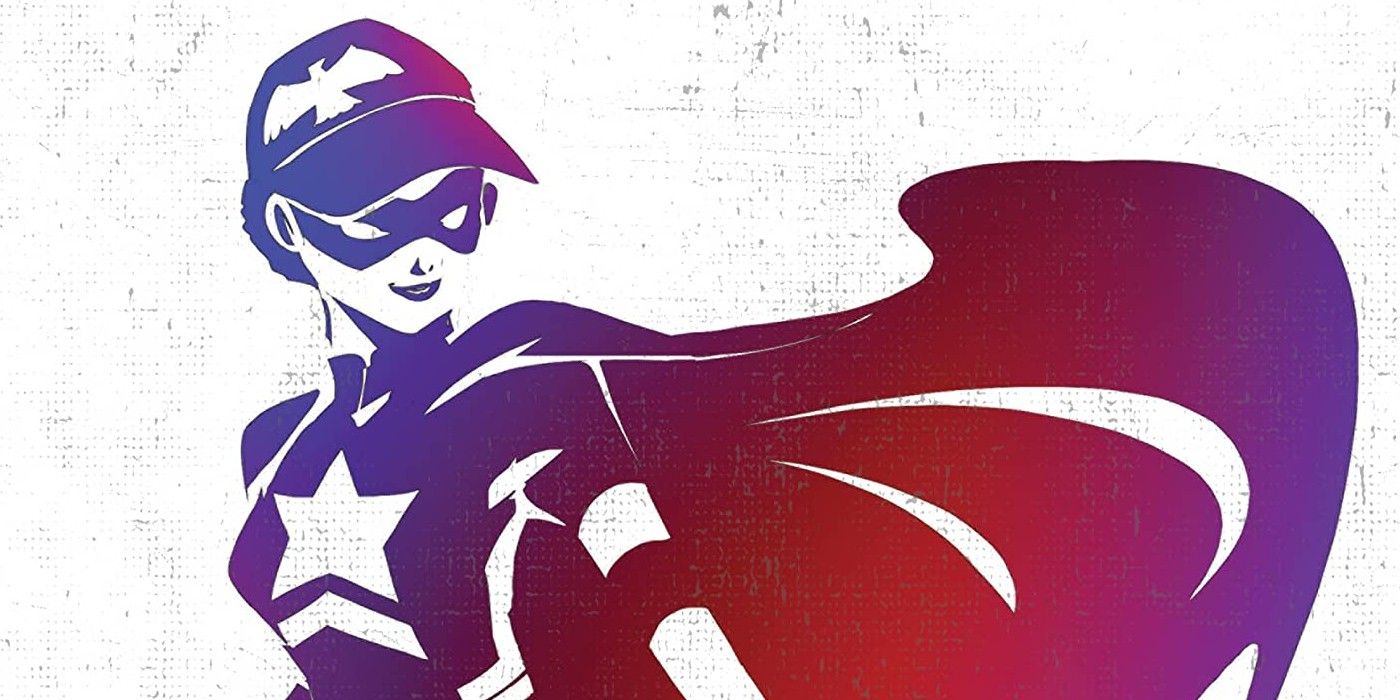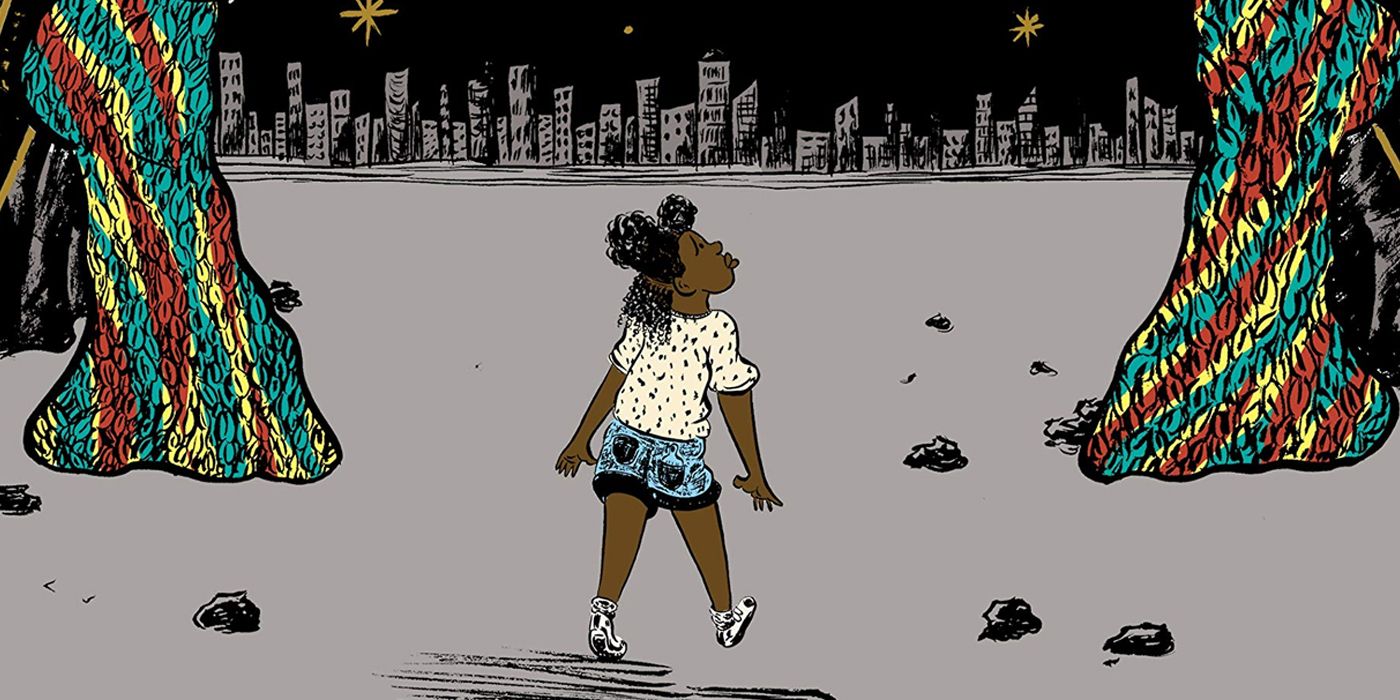As long as comics have been in print, they have been used as tools for free speech and activism. In the early years, Little Orphan Annie was a response to the New Deal in the 1920s, and Captain America took a strong anti-Nazi stance in the 1940s. As the years have gone by, comics continue to be forms of activism, as well as a means to raise money for causes. In light of the protests in the United States that are calling out systematic racial injustices, the comic community is once again coming together to stand against hate.
On Blackout Tuesday, Vita Ayala, writer of Submerged, dedicated their Twitter feed to promoting Black creatives. Ayala encouraged Black artists, writers, musicians and creators from across media backgrounds to drop their portfolios, websites, channels and more, so Ayala could promote their work since, as they put it on Twitter, "#BlackoutTuesday should be about amplifying Black voices not disappearing."
Harrow County artist Tyler Crook also took to Twitter to promote Black-owned comic shops, most of which offer either mail-order or pick-up options. Featured stores include Amalgam Comics & Coffee House, Million Year Picnic, Challenges Games & Comics and Destiny City Comics. Crook also boosted Black-owned bookstores, sharing Third Place Books' Twitter thread, which has a list of retailers to support.
Along with amplifying these Black creators and businesses, the Comic Book Legal Defense Fund (CBLDF) has posted a list of comics addressing anti-racist themes, as well as African-American experiences, that can be used as a jumping-off point for discussions about the history of racism in the United States, as well as the racial injustices still prevalent in the country. Those books include I am Alfonso Jones, written by Tony Medina and art by Stacey Robinson and John Jennings; Hot Comb by Ebony Flowers; Your Black Friend by Ben Passmore and Bitter Root, written by David F. Walker and Chuck Brown, with art by Sanford Greene.
Additionally, the CBLDF, in partnership with Black Nerd Problems, has provided cartoonist profiles for Black creators who have contributed to the history of freedom of expression, like Jackie Ormes, Richard Eugene "Grass" Green and Matt Baker. They also feature several webinars about using comics to teach understanding and tolerance, as well as tougher subjects.
Along with amplifying these resources, comic creators have been using their platforms and art to raise money. Gail Simone has put her original Wonder Woman artwork from George Perez up for auction in order to raise money for Black Lives Matter. She has also challenged fellow comic writers to follow in her footsteps and put their artwork up for auction as well.
"I challenge [writers]... take a piece that has special meaning to you and auction it off... for #BLM," she tweeted. "We have Black retailers and readers, and they're hurting. We have creators and editors who were not always treated fairly. We can do this. Take the #ComicsWriterChallenge and trade something you love for something we need."
Another creator, Mitch Gerads, is selling his Mr. Terrific art for the cause. The artist is specifically donating the money from the Strange Adventures #4 art to Campaign Zero, an organization dedicated to stopping police brutality and related deaths by "limiting police interventions, improving community interactions and ensuring accountability."
Specifically in response to #ComicsWriterChallenge, Scott Snyder, the writer behind Dark Nights Metal, is selling the signed page of art he has from the comic, with the proceeds benefiting the Black Lives Matter movement. Jock, an artist who's collaborated with Snyder on Batman, is also selling his screen print of Detective Comics #880. These are only a few of the comic creators selling their art to benefit the cause.
Beyond individual artists and writers, Black Mask Studios is donating 100 percent of its webstore profits on select titles to protestor bail funds. These titles include BLACK, Calexit, Black [AF]: Devil's Dye, Black [AF]: Widows and Orphans and Young Terrorists. Other titles under Black Mask Studios will donate 50 percent of profits from webstore sales, with other creators under this label, like Ballistic's Adam Egypt Mortimer, requesting profits from their books to be donated as well.
Kwanza Osajyefo, the creator of BLACK, also launched an online shop for shirts with the comic's cover art on them. As Osajyefo's states on BLACKTheComic.com, 100 percent of these proceeds will be going to programs that help, "protestors, journalists and healthcare providers on the frontlines being arrested for our response to the violence of systemic racism."
It is not surprising to see the comic book industry use art to benefit the greater good. In the past, there have been multiple anthology books published to raise money for several causes, including the Pulse nightclub shooting victims, survivors and their families (Love is Love), disaster relief in Puerto Rico (Puerto Rico Strong) and reproductive rights (Comics for Choice), to name only a few. Comics have also been used over the decades as a means of self expression, education and defiance, with books like Persepolis, Maus and Exit Stage Left: The Snagglepuss Chronicles tackling historical injustices in a manner that is accessible to readers of different ages and backgrounds.
Along with their entertainment value, comic books can be tools to speak out against injustices and to educate readers about history. With an audience that spans multiple backgrounds and creators from all across the board, the comic book industry has an opportunity to use its platform to support their fans and creators who are facing injustices, whether it's through uplifting Black creatives and businesses, donating money to non-profit organizations or using their books to educate others about the issues at hand. The cases in this feature, as well as the resources, are only a few ways to work alongside the comic community as it continues the long tradition of using art for social change.



